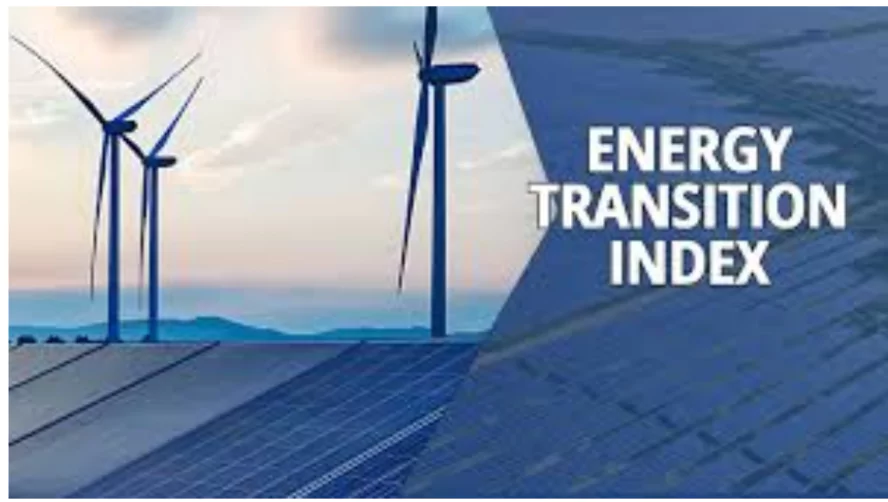Recently, the World Economic Forum (WEF) ranked India at the 63rd place globally on its Energy Transition Index 2024. However, in 2023, India was at 67th place.
Crucial Insights from the Energy Transition Index 2024

- Top Position Holders: European nations dominated the top ranks in the following given order:
- Sweden
- Denmark
- Finland
- Switzerland
- France
- The top 10 countries account for only 1% of energy-related CO2 emissions, 3% of total energy supply, 3% of energy demand and 2% of the global population.
- Overall, 53 countries have made steady progress in the past decade.
- Increase in Global Average: This year saw the highest global average scores, with modest improvements in system performance of about 0.2% and strong progress in transition readiness, with a growth of 2%.
- Global average scores increased by 6% since 2015 but showed slower growth in the past three years.
- Positive Development by the Developing Countries: The improvement shown by India and some other developing countries such as China and Brazil assumes significance.
- The developing world has an opportunity to rewrite the rules and show the way to successfully transform energy demand.
- On the role of China and India, the WEF said that with roughly a third of the global population, these two countries will play a critical role.
- Both have experienced progress in renewable energy buildout, energy access improvements and energy security.
- These countries are in a strong position for green tech manufacturing.
- While innovation growth has slowed, countries like China and India are leading in developing new energy solutions and technologies.
- Challenge: The phase-down trajectory of coal will be a major driver of emissions.
- Note on India: The WEF said by its various initiatives and actions, India is leading the way in creating outcomes that can be replicated elsewhere.
- India’s per capita emissions, at 1.7 tonnes of CO2, are already 60% lower than the global average of 4.4 tonnes of CO2 per capita.
- The WEF also lauded the strides made by India in its clean energy infrastructure, with renewable energy and biomass comprising 42% of its power generation capacity, making it the fourth-largest renewables market globally.
- With annual investments nearing $10 billion, India is driving the adoption of electric vehicles (EVs) and the production of green hydrogen.
- India’s focus on leveraging energy for income generation and supporting microenterprises through the productive use of renewable energy sources.
Enroll now for UPSC Online Course
-
Raised Concerns
- Lost Momentum: Globally, the report said the energy transition to a more equitable, secure and sustainable energy system is still progressing but has lost momentum in the face of increasing uncertainty worldwide.
- While 107 of the 120 countries benchmarked in the report demonstrated progress on their energy transition journeys in the past decade, the overall pace of the transition has slowed and balancing its different facets remains a key challenge.
- Slow down on Innovation Growth: 83% of countries have moved backwards from last year in at least one of the three energy system performance dimensions – security, equity and sustainability.
- Slow Progress towards a Balanced System: Only 28% of countries showed strong improvement in the dimension with the lowest score, signalling progress towards a more balanced system.
-
Suggestions
- Significant Investment: There is still a need to decouple growth from energy demand. This requires significant investment in energy efficiency, particularly during the development of new infrastructure and manufacturing capacity.
- Awareness and Policy Interventions: The WEF said the governments can also consider creating awareness and policy interventions, such as guidelines for energy-efficient built infrastructure and incentives for retrofitting, to shape an enabling environment for accelerated adoption.
About Energy Transition Index
- Published by: The World Economic Forum in collaboration with Accenture
- Performance Track: It tracks the performance of energy systems of countries across:
- Economic development and growth
- Environmental sustainability
- Energy security
- Access indicators and their readiness for transition to secure, sustainable, affordable and inclusive energy systems
|
![]() 20 Jun 2024
20 Jun 2024
